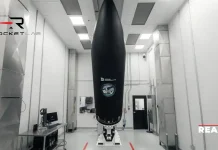Russia’s invasion of Ukraine is testing the capacity of global food systems to feed the world in times of crisis. An estimated 1.7 billion people—most of them in developing economies—could suffer severely increased food insecurity, higher energy prices, or greater debt burdens, according to the UN Task Team for the Global Crisis Response Group. Each of these individual factors adversely affects people’s ability to feed themselves. At the same time, there is a critical need to address them more holistically and across all sectors in order to reshape our food systems so that we can counteract this humanitarian crisis—and future ones.
Also Read: Good Catch Plant-Based Seafood Partners With Ladle & Leaf to Launch New Vegan Soups
A new report from Boston Consulting Group (BCG), titled The War in Ukraine and the Rush to Feed the World, explores in detail the multiple direct and indirect impacts of the turmoil in Ukraine and provides 30 near- and medium-term solutions to help respond to the crisis and improve the resilience of global food systems. As the report notes, the looming global food crisis isn’t about the world’s capacity to produce enough food. Rather, it is about our food systems’ inability to securely and equitably store and distribute enough food—and the inputs needed to produce it—in the face of the disruption caused by the ongoing war.
Together, Russia and Ukraine account for about 12% of the total food calories traded around the world, and both are critical exporters of key commodities such as wheat (28% of global trade) and sunflower oil (69%), according to the International Food Policy Institute. The UN’s World Food Programme (WFP) buys from Ukraine half of the wheat it distributes around the world. Further, as exports from these countries tumble, some other leading exporting countries have announced export bans or licensing restrictions designed to protect their own food stockpiles.
As a result, prices are skyrocketing—not just for food, but also for essential agricultural inputs, such as fertilizer and fuel, that Russia has long been a key supplier of. About half of the world’s people rely on food outputs that use fertilizer, and a drop in fertilizer supply could severely affect exposed populations for up to four years unless action is taken immediately to boost supplies. Moreover, the ripple effects of disruptions to the fertilizer supply chain will reach consumers worldwide.




